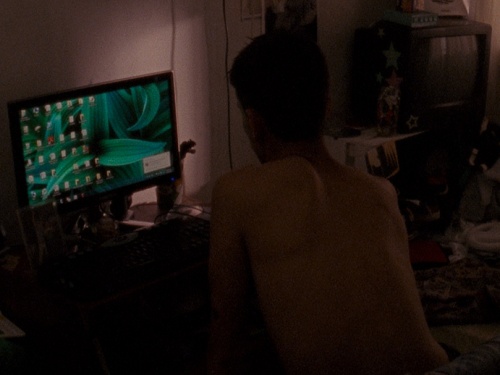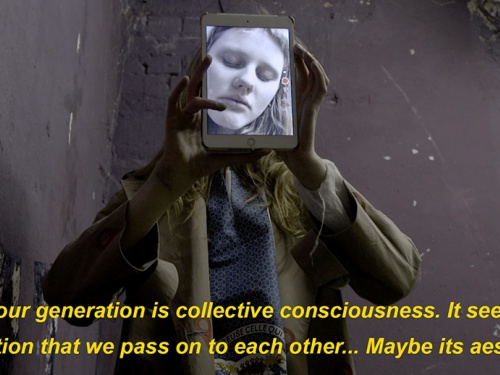Surreal Frames: Three Video Essays on Luis Buñuel
To mark the release of three video essays by Cristina Álvarez López, specially commissioned to accompany the Luis Buñuel: Aesthetics of the Irrational season, ICA Cinema Project Coordinator Will Guy presents the project.
Relatively young in comparison to other artistic mediums, the history of cinema hardly outstretches a single lifetime. As such, we find that certain industrious individuals have exerted an incredible influence upon cinema’s current shape and form. Few more so than Luis Buñuel Portolés; born close to the moment of cinema’s invention and accompanying it for over 80 years, he was an enduring companion with whom the medium developed. Producing films relentlessly and pursuing cinema’s growth across the world, Buñuel had a tremendous influence on numerous contemporary directors who can hardly be associated by any other means.
The ICA’s Buñuel retrospective not only grants an opportunity to revive his work, but also responds to his contemporary influence by exploring new approaches that enable fresh understanding of this legacy. Video essays and emerging forms of audiovisual criticism provide an ideal method through which to investigate Buñuel’s filmmaking: works that often seem to resist logical interpretations may be understood through their own images and sounds, a direct approach that is appropriate to the instinctive nature of Buñuel’s work.
Working with filmmaker and academic Cristina Álvarez López, the ICA has commissioned three video essays to investigate the key phases of Buñuel’s filmography: the early French period during the 1920s, his shift in style in Mexico 30 years later, through to his final international co-productions that saw his reputation grow across the world. Largely identified by filming location, these key phases informed the selection of screenings in the retrospective to provide structure to the programme. Our commissions similarly circle these stages of production, delving into their particular characteristics. From here, López traces the development of Buñuel’s influential style to identify key tendencies and reveal their intent:
Buñuel and Surrealism: Revolt into Love
"The first video Buñuel And Surrealism: Revolt Into Love, is an exploration of two typically Surreal themes or attitudes – love and revolt – and especially of the bond between them."
López begins by exploring the distinctive cinematic experiments that first announced Buñuel’s provocative filmmaking to the world. Emerging from the core of the Surrealist movement of 1930s Paris and collaborating closely with Salvador Dalí, Buñuel produced essential works of early cinema whose iconic images remain both startling and deeply original.
While other artists remained frustrated by the lengthy preparations required by film production in contrast to the conventionally instantaneous methods of surrealist creativity, Buñuel immediately recognised the cinema as “invented to express the life of the subconscious, the roots of which penetrate poetry so deeply.” Approaching the films from this perspective, López decodes their images to explore the classic Surrealist ideas of revolution and mad love - passionate and explosive elements which this essay film interprets beneath the sounds of ancient drumming rituals from Buñuel's Spanish hometown of Calanda.
Buñuel in Mexico: The Logic of Delirium
"These motifs I interpret not so much as the personal obsessions or fantasies of Buñuel, but as clusters of images that express the social ideology or value-systems of the characters – the systems that Buñuel wishes to dismantle, by exposing their innermost logic."
This second video essay focuses on the films of Buñuel’s Mexican period to uncover the uncompromising logic threading through his seemingly irrational juxtaposition of imagery and ideas. Despite the filmmaker’s hatred of humanity’s “rage to understand” and the constant harassment he suffered from questioning film critics, Buñuel’s philosophy emerges and curates each frame. Working directly with the film material—into which we are given further insight through quotes from filmmaker and writer Jean-André Fieschi—López constructs an audiovisual essay to locate the distinctive and deeply personal ideology that underpins Buñuel’s work.
International Buñuel: Interruption As Method
"By the final years of his career, Buñuel had not only achieved a very classical style of filmmaking, but also proved himself to be a very able storyteller, with a great capacity to immediately hook the viewer into whatever tale is he spinning."
This video essay surveys characters’ attitudes to national identities in Buñuel’s late films, revealing a commentary on international relations. With screenwriter Jean-Claude Carrière, Buñuel crafts cultural stereotypes, highlighting the contradictions that underpin these concepts through precise lines of dialogue. Moving beyond this, López identifies one of Buñuel’s fundamental techniques: interruption. This sees the filmmaker persistently disrupt the progression of his narrative to frustrate characters and audiences alike. Through an assessment of this strategy, we identify its implications for the development of key themes in Buñuel’s work, permitting further understanding of his essential legacy. ■
Luis Buñuel: Aesthetics of the Irrational runs 12 November - 6 December 2015.
Quotations in this text are taken from the article Deconstructing and Reconstruting Buñuel, by filmmaker Cristina Álvarez López, available as a download below.
This article is posted in: Articles, Blog, Events, Film
Tagged with: Audiovisual Criticism, Luis Buñuel, Aesthetics of the Irrational, Luis Bunuel: Aesthetics of the Irrational, Cristina Álvarez López, Will Guy, Video Essays, Film, Cinema





